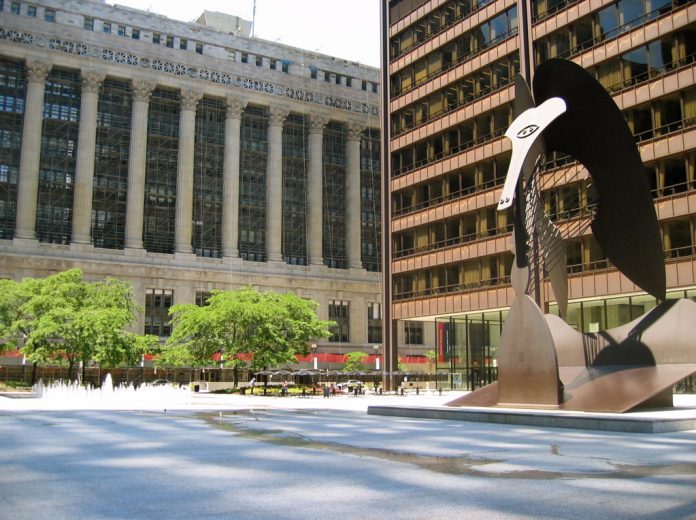Chicago City Council’s finance committee has authorized a $100 million capital plan — but the city plans further capital spending with a larger general obligation bond later in the year.
“The city is proposing to get this program kick-started as soon as possible, in part to create jobs as quickly as we can in the midst of this crisis, but also to make sure the city can take advantage of the summer construction season,” Chief Financial Officer Jennie Huang Bennett said on May 18.
“The projects will be funded from the existing $100 million line of credit. The city will seek authorization from City Council for a general obligation bond financing later in the year to repay the line of credit.”
Normally, the city issues general obligation bonds backed by property taxes to cover a more sweeping capital program, the Chicago Sun-Times reported. However COVID-19 has changed the rules.
The immediate plan includes: $83 million for the aldermanic menu program and $3 million for the shared sidewalk program as well as funds for police vehicles, salt trucks and a couple of front-end loaders.
“We do have a limited set of resources. But especially in this time post-COVID, the government has a role to play in helping to support the economic recovery as well as investing in Chicago’s future. So it’s a conversation that is very important for us to have. It’s not gonna be easy, but we look forward to having that conversation.”
The COVID-19 pandemic could result in a revenue shortfall of more than $500 million.
At the committee meeting, Ald. Ray Lopez asked about the city’s ability to bankroll larger projects including the $95 million police and fire training academy.
Huang Bennett said the $800 million in general obligation bonds issued by former Mayor Rahm Emanuel — including $65 million for the police academy — has already been secured.
“To the extent that there are potential additional needs or alterations to the projects that were approved there, we expect to have that conversation as part of the broader capital plan discussion we have later this year,” she said. “We’ll have to see how long it takes for us to get out of COVID, to get through the recovery process and, importantly, what the state of the city’s finances are looking like. It’s all part of a broader discussion of affordability, but also about what are the critical needs.””






